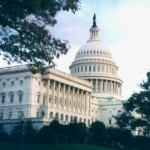 Today, the U.S. House of Representatives Committee on Financial Services heard testimony regarding the “Overdraft Protection Act of 2009” (H.R. 3904). Some very interesting testimony was provided by: the Center For Responsible Lending (CRL), the Consumer Federation of America (CFA), and others.
Today, the U.S. House of Representatives Committee on Financial Services heard testimony regarding the “Overdraft Protection Act of 2009” (H.R. 3904). Some very interesting testimony was provided by: the Center For Responsible Lending (CRL), the Consumer Federation of America (CFA), and others.
The CRL provided testimony suggesting that a large portion of the $26.6 Billion of overdraft fees in 2009 will be the result of small dollar amount debit card or ATM transactions (transactions that could have been avoided if the banks would just deny transactions that would result in an overdraft). These are transactions that are, for the most part, completely avoided when prepaid debit cards are used.
Here are a few statistics from the testimony:
Total overdraft fees have increased due to both an increase in cost and an increase in frequency:
Cost. From 1997 to 2007, the average overdraft fee charged by financial institutions increased from $16.50 to $29.6 CRL estimates that the average fee paid by consumers is $34,7 which is unsurprising since the sixteen largest banks charge an average fee of $35.8. The FDIC’s 2008 survey, which included many smaller financial institutions, found an average among its institutions of $27 per overdraft.
Frequency. As recently as 2004, 80 percent of institutions denied debit card transactions that would have overdrawn the account. Today, approximately 80 percent of institutions routinely approve these transactions and charge a fee for each overdraft. This shift has increased the frequency of overdrafts significantly, particularly given the overall increase in debit card use. Overdraft fees affect a very large number of consumers each year. CRL recently estimated that over 50 million Americans overdraw their accounts annually, with 27 million paying five or more overdraft or NSF fees.
Most of these fees are paid by a relatively small number of consumers the FDIC found that 93 percent of all overdraft fees are paid by only 14 percent of account holders. These consumers are more likely to be lower-income, non-white or young account holders least able to afford such fees.14 In the midst of a recession, abusive overdraft practices are making the dire financial situations faced by many families even worse.
See the transcript of CRL’s testimony here.
Not to be outdone, the Consumer Federation of America provided some great stats as well as some quotable comments, including “Banks Turn Debit Cards into High Cost ‘Credit Cards’ When Overdrafts Permitted”. (see the testimony here)
Not surprisingly, several Banking groups oppose the bill (at least in part). The testimony of the American Bankers Association argued that: “Consumers value depository institutions paying their overdrafts and have come to expect it as it helps to avoid the embarrassment, inconvenience, fees imposed by merchants and others, and other adverse consequences of having a check bounce or a transaction denied.” (I don’t know about you, but I’d rather be embarrassed than get hit by a $35 overdraft fee as a result of a debit overdraft for a coffee at Starbucks). Check the testimony here.
You can read all of the testimony (and watch a replay of the hearings) at the House Financial Services Committee Website.
Check the status of the House Bill (and read the full text) here.
Once again, we note that prepaid debit cards avoid these fees, as most prepaid card issuers will deny any transactions which would result in an overdraft.
Comments are closed